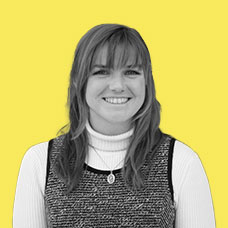PHP: What did the health of restaurant workers before the pandemic look like?
Saru Jayaraman: It was horrible. Not just that they weren’t paid enough—no one had paid sick leave, even the states that required it. When you don’t get a wage, you live on tips. A paid sick day means very little because your income relies on those tips. You can’t actually take a day off. Workers were often sick and could never take a day off. Also, restaurant workers usually have no health insurance. Further, we had the highest level of home insecurity of any industry prior to the pandemic. People were living in their cars or under bridges while working in restaurants. There already was a crisis; the pandemic, frankly, was an explosion of this crisis.
How did this health crisis change for restaurant workers in the pandemic?
It got a lot worse. People died in the restaurant industry. At one point, we surveyed workers, and one-in-three said somebody in the restaurant died of COVID-19. It’s an invisible death rate. It’s not like other jobs—you can’t be quarantined and still get your work done. Employees would have to quarantine and couldn’t collect unemployment for those lost days. The pandemic really revealed what we call pre-existing conditions in the restaurant industry.
How were restaurant and subminimum wage workers at large affected by the pandemic?
So, workers were already in crisis; they were living, as I used to call it, tip to mouth. In March of 2020, six million restaurant workers lost their jobs. That means one-in-four people who lost their jobs in the US were in the restaurant industry. And two-thirds of those workers reported that they actually couldn’t get unemployment insurance because in most states they were told that their wages were too low to qualify for benefits. And then many felt compelled to go back to work in restaurants in the summer before they felt safe or ready. The CDC and UCSF named restaurants the most dangerous place for adults to be and to work in. In all the other dangerous places with essential workers, we were talking about hazard pay and protection. Here you’ve got a group of essential workers working in the most dangerous place, and they weren’t even getting the minimum wage—they were getting subminimum wages.
What changes are we seeing in policy because of this?
We are moving One Fair Wage in 25 states right now, putting up bills to end subminimum wage. We put this on the ballot in Washington DC in June 2018. We won because anytime you put this on the ballot anywhere, it passes. Then, the Restaurant Association basically bribed the City Council to overturn the will of the people. We filed it again in the fall of 2021, and the day we filed, the Head of the DC Restaurant Association said they were not going to fight us on it. No restaurant could afford to be out there publicly fighting it while they’re desperately looking for staff. We are going to see DC become the first of many states to pass it.
There are really only two choices for the future of the restaurant industry: either be cut in half because of staff shortages or we raise wages.
What are things an individual can do to be a part of the efforts to improve rights and wages for tipped workers?
We’re always looking for donors and volunteers. You can go on our website to do that. Also, High Road Kitchens created a list of restaurants that pay a livable wage. So, we ask you not only to support those restaurants when you go out, but wherever you eat out, tell employers about the list and let them know you’d like to see their restaurant on it.
Saru Jayaraman will be featured in the Challenging Public Health series on March 23 at 1 p.m. Register here.














